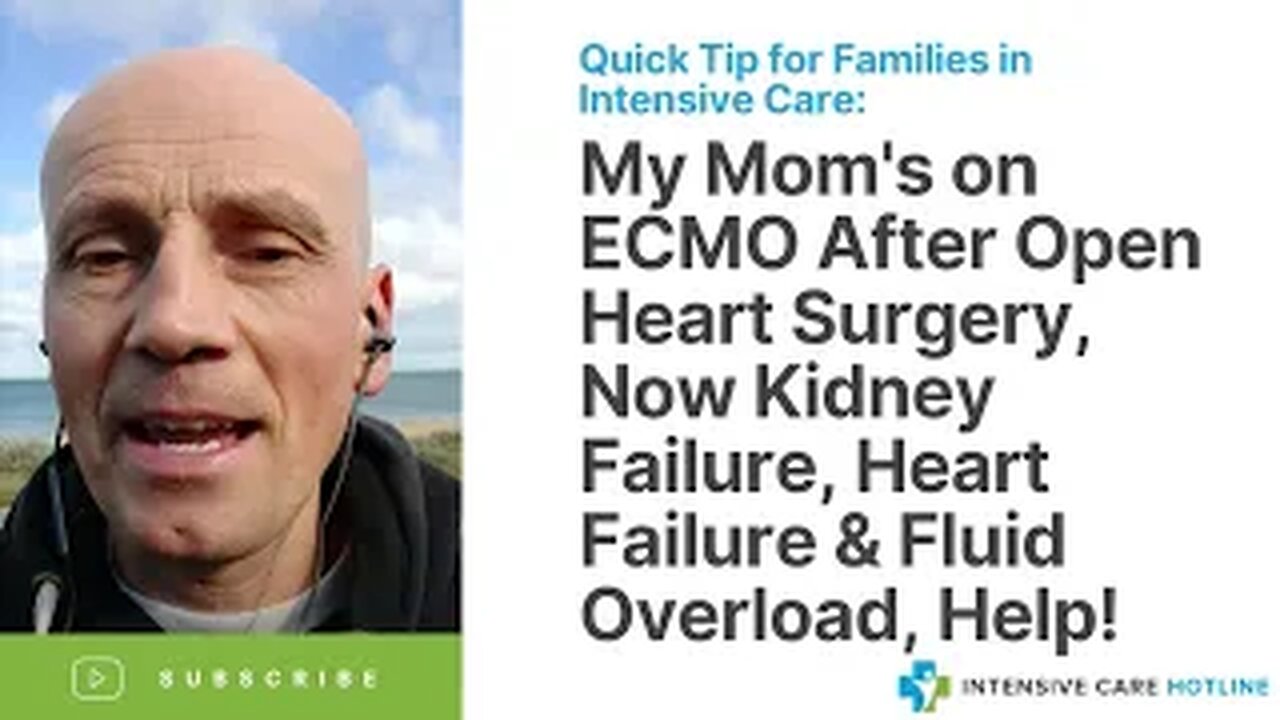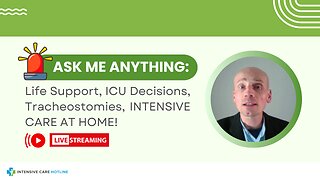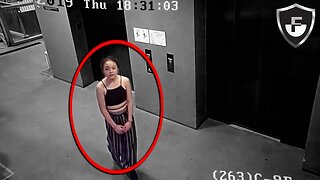Premium Only Content

My Mom's on ECMO After Open Heart Surgery, Now Kidney Failure, Heart Failure& Fluid Overload, Help!
Quick tip for families in Intensive Care: Mom was placed on ECMO after open heart surgery: kidney failure, heart failure& fluid overload, help!
Book your free 15 minute phone consultation here
http://intensivecarehotline.com/scheduling-appointment/
Call directly 24/7
+1 415-915-0090 USA/Canada
+44 118 324 3018 UK
+6141 094 2230 Australia
Email support@intensivecarehotline.com
Get 1:1 consulting and advocacy
1:1 phone counselling
http://intensivecarehotline.com/one-on-one-counselling/
Become a member for families of critically ill Patients in Intensive Care:
https://intensivecarehotline.com/intensivecaresupport-org-membership/
Immediate action steps http://intensivecarehotline.com/take-control-take-charge/immediate-action-steps/
https://intensivecareathome.com
And if you need a medical record review , click on the link and we can help you with reviewing your loved one’s medical records while they’re in ICU.
https://intensivecarehotline.thrivecart.com/review-of-medical-records/
Hi, it’s Patrik Hutzel from intensivecarehotline.com with another quick tip for families in intensive care.
Today’s tip is about ECMO, heart failure, and kidney failure in ICU. So, I had an email from Paul and Paul says, “Hey, my 59-year-old mom ended up in ICU last night after open-heart surgery. She’s now on ECMO (Extracorporeal membrane oxygenation). After one day of open-heart surgery, she has bypass graft. She’s now in heart failure and kidney failure, and she’s in fluid overload. What should I expect?”
That’s a great question, Paul. And obviously if your mom has ended up on ECMO after open-heart surgery, after bypass grafts, possibly means she had an MI (Myocardial Infarction) or a heart attack leading up to open-heart surgery. She possibly went into cardiac arrest while she was in surgery. You should definitely ask the ICU if that has been the case, because they may not have given you the full picture. They often deliberately withhold information unless you are asking the right questions.
The biggest challenge for families in intensive care is simply that they don’t know what they don’t know. They don’t know what questions to ask. They don’t know what to look for. They don’t know their rights and they don’t know how to manage doctors and nurses in intensive care. And that’s probably one of the challenges that you’re facing here, Paul.
But anyway, coming back to your question. So, she probably sustained the cardiac arrest, had to be put on ECMO to continue the function of the heart because the heart probably went into arrest and now the heart is slowly, hopefully recovering. She’s probably on inotropes and vasopressors such as the dobutamine, milrinone, noradrenaline, norepinephrine, epinephrine, or adrenaline. She’s probably in an induced coma. She has chest drains in situ. She has chest drains where the surgery drainage or the surgery blood is coming out. You should also ask whether she had extensive bleeding during surgery. Did she have any blood products? They have to replace bloods. What’s her hemoglobin like after surgery? She’s now on a heparin infusion because of the ECMO.
Now, I’m not surprised that she went into kidney failure because probably the kidneys weren’t perfused for a period of time with potentially having a cardiac arrest while she was in cardiac surgery. So, she probably now will need to go on dialysis or hemofiltration.
And with the heart failure, that’s probably a result of the heart attack she had before surgery and now a result of her being on ECMO. On top of that, she has pulmonary edema or fluids on the lungs. Again, no surprises there, because if she had a heart attack, the ejection fraction or the contractility of the heart would’ve gone down significantly. And therefore, the heart is not in a position to pump blood around. Fluids are pushing back into the lungs, that’s how she goes into fluid overload. On top of that, there’s kidney failure. So, I hope that paints the picture for you, what your mom is probably currently going through.
Now, what are the next steps? Okay. The next steps are let the inotropes and vasopressors do their work. Let the ECMO do their work. Let’s see whether she can recover from the cardiac arrest. Let’s see whether she goes back into a normal sinus rhythm. She probably has been in an irregular rhythm, something like atrial fibrillation, potentially even ventricular tachycardia, ventricular fibrillation, and let the heart recover and then see what the next steps are.
-
 39:07
39:07
Intensive Care Hotline
8 days agoAsk Me Anything: Life Support, ICU Decisions, Tracheostomies, INTENSIVE CARE AT HOME!
201 -
 LIVE
LIVE
The Official Steve Harvey
12 days ago $5.07 earned24 HOURS OF MOTIVATION w/ STEVE HARVEY
469 watching -
 25:56
25:56
DeVory Darkins
20 hours ago $0.66 earnedTrump drops ULTIMATE BOMB on Democrat Mayors as ICE makes SHOCKING Announcement
32.6K161 -
 3:36:30
3:36:30
TonYGaMinG
5 hours ago🟢 ABI WITH FRIENDS | 🍩JOE DONUTS | 😶 🌫 VLADSGAMINGCARTEL |
16.7K4 -
 21:24
21:24
marcushouse
12 hours ago $0.10 earnedStarship Flight 10: Go or No? 🚀
21.8K12 -
 LIVE
LIVE
MrR4ger
17 hours agoSUNDAY FUNDAY w/ R4GER - VARIETY / DIABLO 4/ FOR HONOR / ETC?
85 watching -
 5:40
5:40
WhaddoYouMeme
3 days ago $0.28 earnedThey’re Calling This the End of Masculinity
26.8K30 -
 15:24
15:24
Tactical Advisor
20 hours agoBest 2011 of 2025 | Bul Armory Ultralight Pro
28.2K2 -
 27:31
27:31
True Crime | Unsolved Cases | Mysterious Stories
2 days ago $0.18 earnedThe Hong Kong Schoolgirl Mystery – 5 Mysterious Unsolved Cases (Part 8)
21K4 -
 7:19
7:19
China Uncensored
1 day agoChina is DONE in the South China Sea
17.1K48